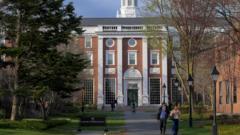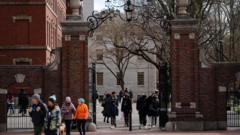Three American citizens, previously sentenced to death for involvement in a coup attempt in Congo, have been returned to the U.S. following a commutation of their sentences. The men were part of a group implicated in a failed assault on the Congolese government last May and are now expected to serve life sentences domestically.
Congo Sends Three Americans Home After Life Sentences in Coup Attempt

Congo Sends Three Americans Home After Life Sentences in Coup Attempt
Three Americans involved in a failed coup attempt in the Democratic Republic of Congo have been repatriated after their death sentences were reduced to life imprisonment.
The American men—Marcel Malanga, Tyler Thompson, and Benjamin Zalman-Polun—were repatriated to the United States this week following a decision by Congolese President Felix Tshisekedi's government to commute their sentences. These three were part of 37 individuals sentenced to death after a violent incident in May 2024 that involved an attack near the presidential palace. On April 8, the Congolese presidency announced individual clemency for the Americans, and the next day, they boarded a flight bound for the U.S., their transfer confirmed by the U.S. State Department.
The unexpected reassessment of their sentences coincided with an American diplomatic delegation's visit to Kinshasa, where Tshisekedi discussed potential mineral resource agreements amidst ongoing armed conflict in eastern Congo. The presence of international actors in this context is significant, as U.S. interests in Congo's rich mineral deposits, critical for renewable energy technologies, are growing.
In the aftermath of the coup attempt, which was reportedly planned by the elder Malanga and involved violent confrontations with security forces, questions around AMerican involvement surfaced. Marcel Malanga claimed that he was coerced into participation during his visit to meet his father. The United States aims to solidify its foothold in the region, making the safe return of these individuals a complex diplomatic matter intertwined with broader geopolitical interests.
As the American citizens now face life imprisonment within the U.S. legal system, the circumstances of their involvement in the coup and the tumultuous situation in Congo continue to unfold, highlighting the delicate interplay between international diplomacy and domestic actions.
The unexpected reassessment of their sentences coincided with an American diplomatic delegation's visit to Kinshasa, where Tshisekedi discussed potential mineral resource agreements amidst ongoing armed conflict in eastern Congo. The presence of international actors in this context is significant, as U.S. interests in Congo's rich mineral deposits, critical for renewable energy technologies, are growing.
In the aftermath of the coup attempt, which was reportedly planned by the elder Malanga and involved violent confrontations with security forces, questions around AMerican involvement surfaced. Marcel Malanga claimed that he was coerced into participation during his visit to meet his father. The United States aims to solidify its foothold in the region, making the safe return of these individuals a complex diplomatic matter intertwined with broader geopolitical interests.
As the American citizens now face life imprisonment within the U.S. legal system, the circumstances of their involvement in the coup and the tumultuous situation in Congo continue to unfold, highlighting the delicate interplay between international diplomacy and domestic actions.





















